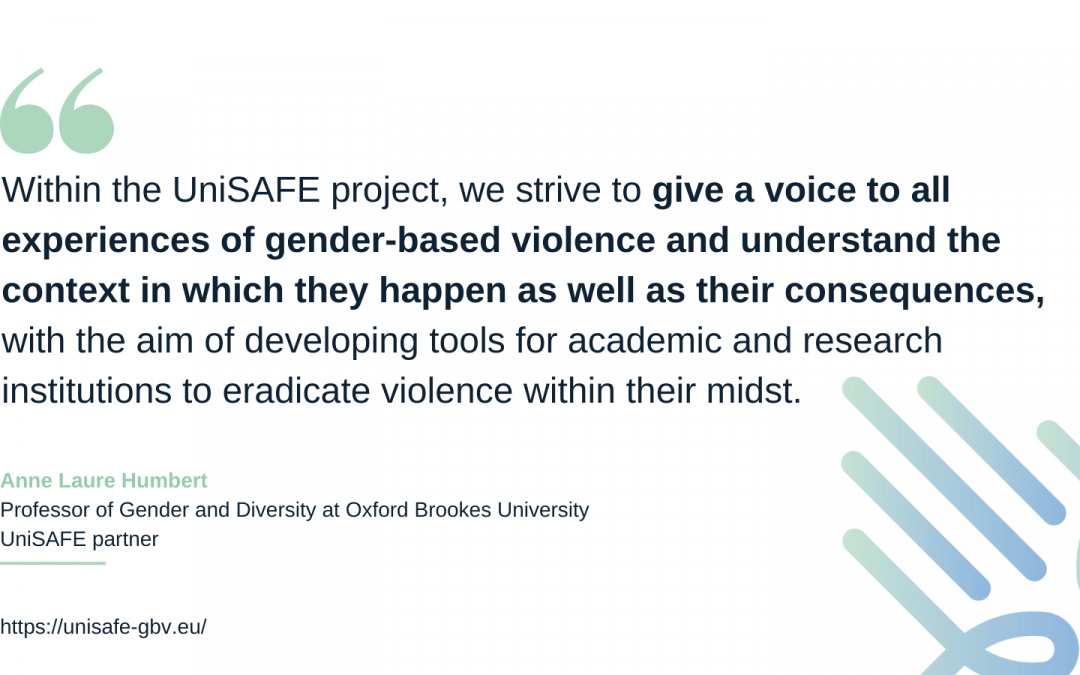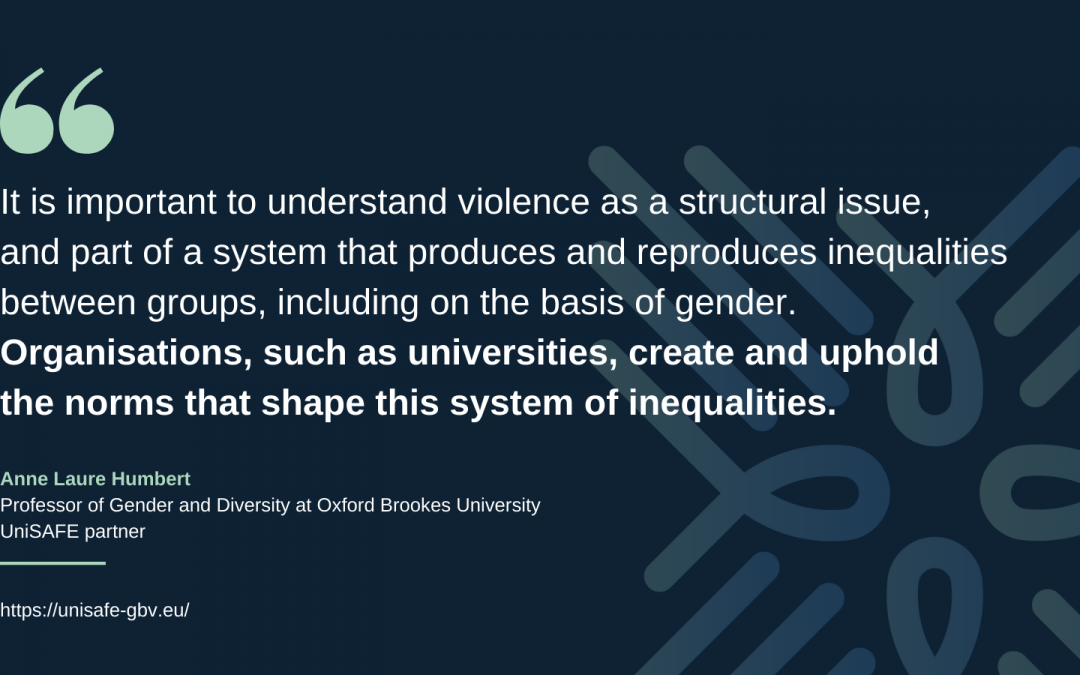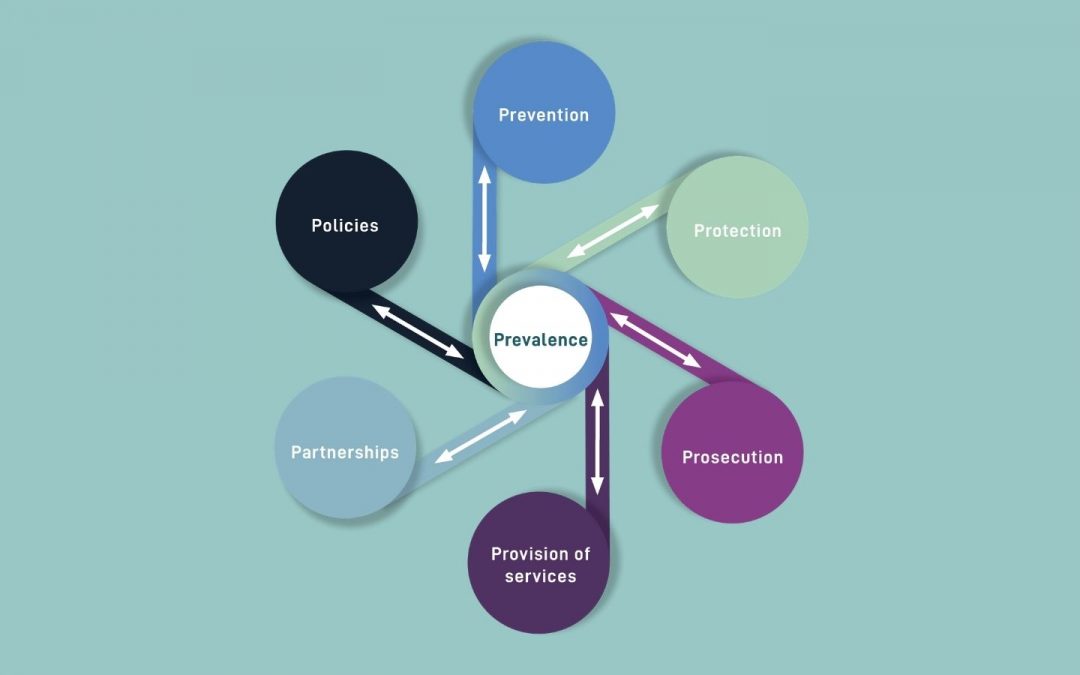


Data protection in the UniSAFE survey
Gathering data on experiences of gender-based violence is a sensitive issue. UniSAFE takes all necessary measures to protect the privacy of survey participants and the confidentiality of the collected data. Claudia Schredl, scientific associate at GESIS Leibniz...
UniSAFE’s approach to measuring gender-based violence in universities and other research organisations
To tackle gender-based violence, it is essential to first have an understanding of the scale of the problem. However, getting accurate estimates is far from a simple exercise. Dr Anne Laure Humbert, Professor of Gender and Diversity at Oxford Brookes University and...
Towards violence-free research organisations
SUPERA is a project funded under Horizon2020 supporting the Promotion of Equality in Research and Academia. Following the #SafeResearch4All campaign, they interviewed UniSAFE partner Anne Laure Humbert on the prevalence of gender-based violence in research and...
Gender-based violence in research organisations and academia in Slovakia
The Slovak Institute for Labour and Family Research (IVPR) has led a series of actions to research and eradicate gender-based violence in research organisations and academia in Slovakia. 1. Survey on GBV in public universities The IVPR surveyed students of public...
Why are female researchers at higher risk of experiencing gender-based violence?
Research on sexual and gender harassment in universities and research institutions so far has suggested that a general climate of accepting or tolerating sexual and gender harassment prevails in academia.

An innovative framework to study gender-based violence: UniSAFE’s 7P model
To produce solid and comprehensive knowledge on gender-based violence, UniSAFE has developed an innovative conceptual framework to investigate the mechanisms, social determinants, antecedents and consequences of gender-based violence in universities and research organisations.

On the importance of addressing gender-based violence in universities and research organisations
UniSAFE’s scientific coordinator Sofia Strid discusses the specificity of gender-based violence in universities and research organisations and why it is crucial to address it.

Gathering evidence on gender-based violence: research gaps on GBV in universities
Despite the growing awareness around the issue of violence against women, reliable and harmonised data on the prevalence of gender-based violence in European countries is still hard to find. Such data becomes even more scarce in relatively under-researched contexts such as the workplace, particularly in universities and research organisations.
